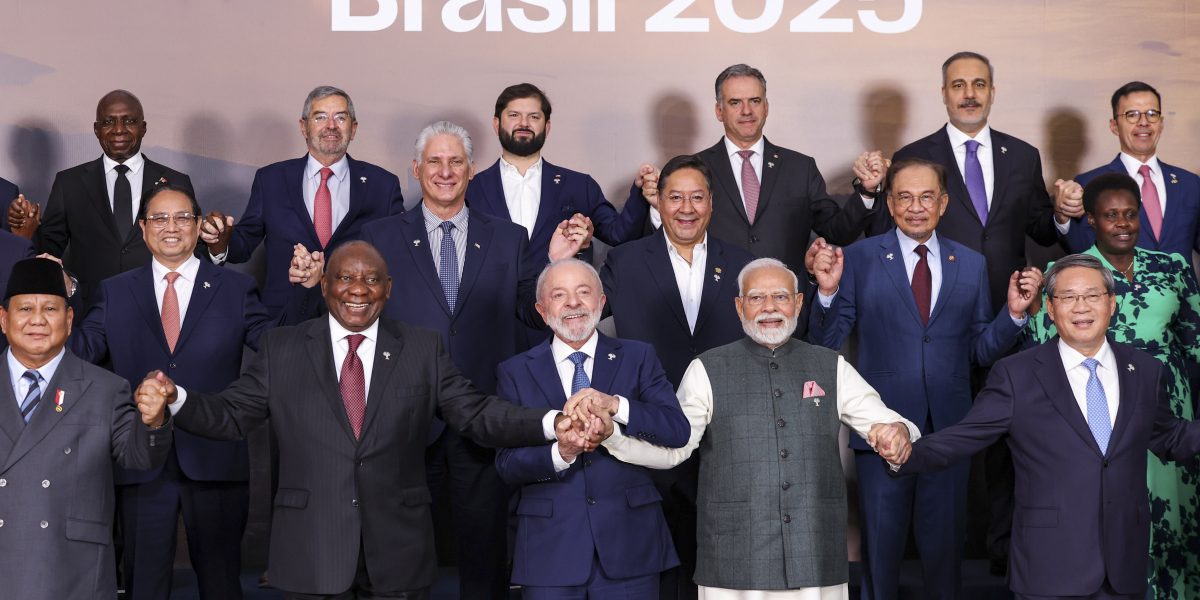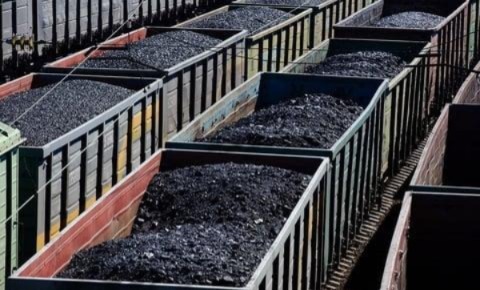Rio de Janeiro (PTI): The BRICS nations must work together to make supply chains for critical minerals and technology secure and ensure that no country uses these resources for its own "selfish gain" or as a "weapon" against others, Prime Minister Narendra Modi said at the annual summit of the grouping.
In his address at a session on multilateralism, financial matters and artificial intelligence on Sunday, Modi also called for creation of global standards for use of AI to maintain transparency and prevent misuse.
The prime minister's comments on critical minerals came amid concerns over China restrictions on the export of the vital resources as well as its non-transparent policy approach in the sector.
"We need to work together to make supply chains for critical minerals and technology secure and reliable. It's important to ensure that no country uses these resources for its own selfish gain or as a weapon against others," Modi said.
Critical minerals such as lithium, nickel and graphite are considered vital for high-end technology products including electric vehicles (EVs), drones, and battery storage. China has been a dominant player in the critical minerals supply chain globally.
On artificial intelligence, Modi said it can greatly improve everyday life but on the other hand, it also raised concerns about risks, ethics, and bias.
The prime minister announced that India will organise the "AI Impact Summit" next year.
"We believe that resolving concerns and encouraging innovation should be given equal importance in AI governance. We must work together for responsible AI," Modi said.
"Global standards must be created that can verify the authenticity of digital content, so that we can identify the source of the content and maintain transparency and prevent misuse," he said.
The top leaders of BRICS held deliberations on a range of pressing challenges facing the globe at the summit in this seaside Brazilian city.
Chinese President Xi Jinping and his Russian counterpart Vladimir Putin skipped the summit. Iranian President Masoud Pezeshkian and Egypt's Abdel-Fattah el-Sissi also didn't attend the gathering.
The BRICS has emerged as an influential grouping as it brings together 11 major emerging economies of the world, representing around 49.5 per cent of the global population, around 40 per cent of the global GDP and around 26 per cent of the global trade.
In his remarks, the prime minister also talked about efforts by BRICS to help the Global South.
"In the form of BRICS New Development Bank (NDB), we have offered a strong and credible alternative to support the development aspirations of countries in the Global South," he said.
At the same time, he said the NDB must focus on demand-driven approaches, long-term financial sustainability, and healthy credit rating. Strengthening our internal systems will further enhance the credibility of our call for reformed multilateralism, he said.
Modi said the countries of the Global South have some special expectations and aspirations from BRICS and it should work together to fulfil them.
"For instance, the BRICS Agricultural Research Platform, established in India, is a valuable initiative to enhance collaboration in agricultural research." "It can become a medium for sharing research and best practices in topics such as agri-biotech, precision farming, and climate change adaptation. We can also extend its benefits to countries in the Global South," he said.
The prime minister also proposed creation of a BRICS Science and Research Repository, which could also serve as a valuable resource for the countries of the Global South.
"The Global South has many hopes from us. To fulfil them, we must follow the principle of 'Lead by Example'," he said.
"India is fully committed to working shoulder-to-shoulder with all our partners to achieve our common goals," he added.
Let the Truth be known. If you read VB and like VB, please be a VB Supporter and Help us deliver the Truth to one and all.
Shillong (PTI): As the Meghalaya High Court pulled up the state government over the disappearance of over 4,000 tonnes of coal, a minister on Monday claimed that heavy rain in the state might have washed it away.
The high court has directed the state government to take action against officials under whose watch the coal went missing.
Speaking to reporters, Excise Minister Kyrmen Shylla said, "Meghalaya receives the highest rainfall. You never know... because of rain, the coal might have swept away. Chances are very high."
The high court had on July 25 pulled up the state government over the vanishing of coal from Rajaju and Diengngan villages and instructed it to trace those responsible for lifting the coal illegally.
The minister, however, clarified that he was not trying to justify the disappearance, and admitted there was no conclusive evidence yet to determine whether the loss was due to natural causes or any illegal activity. "I cannot blame just the rain. It could be or it could not be. I really don't have any kind of details," he said.
He asserted that any activity related to coal mining or transportation must be done in accordance with the law and that authorities must ensure illegal practices are curbed.
On allegations of ongoing illegal coal mining and transport in the state, Shylla said concrete evidence was needed to establish such claims and that multiple departments were responsible for monitoring such activities.
"But I believe that our people, if it is for survival, might do it illegally... otherwise nobody wants to do anything that can harm the state," he said.
He expressed optimism that people would abide by the law, especially after the government's announcement of scientific mining.
"We all are happy to welcome it, and we want to see the light of day with this. I believe our people will not do anything that gives the court or law a chance to point fingers at us," he added.
The ban on coal mining and transportation in Meghalaya was imposed by the National Green Tribunal (NGT) in 2014, citing rampant unregulated and unsafe mining practices, especially the controversial 'rat-hole' mining technique prevalent in the state.
The tribunal's order came in the wake of mounting concerns over environmental degradation, water contamination, and frequent fatalities in the hazardous mines, particularly in East Jaintia Hills.
On a separate note, the minister also responded to complaints over the dust and debris caused by the ongoing construction along National Highway 6 in East Jaintia Hills, saying, "I appreciate this government for the initiative. For now, it is difficult, but once everything is completed, we will enjoy the benefits."



